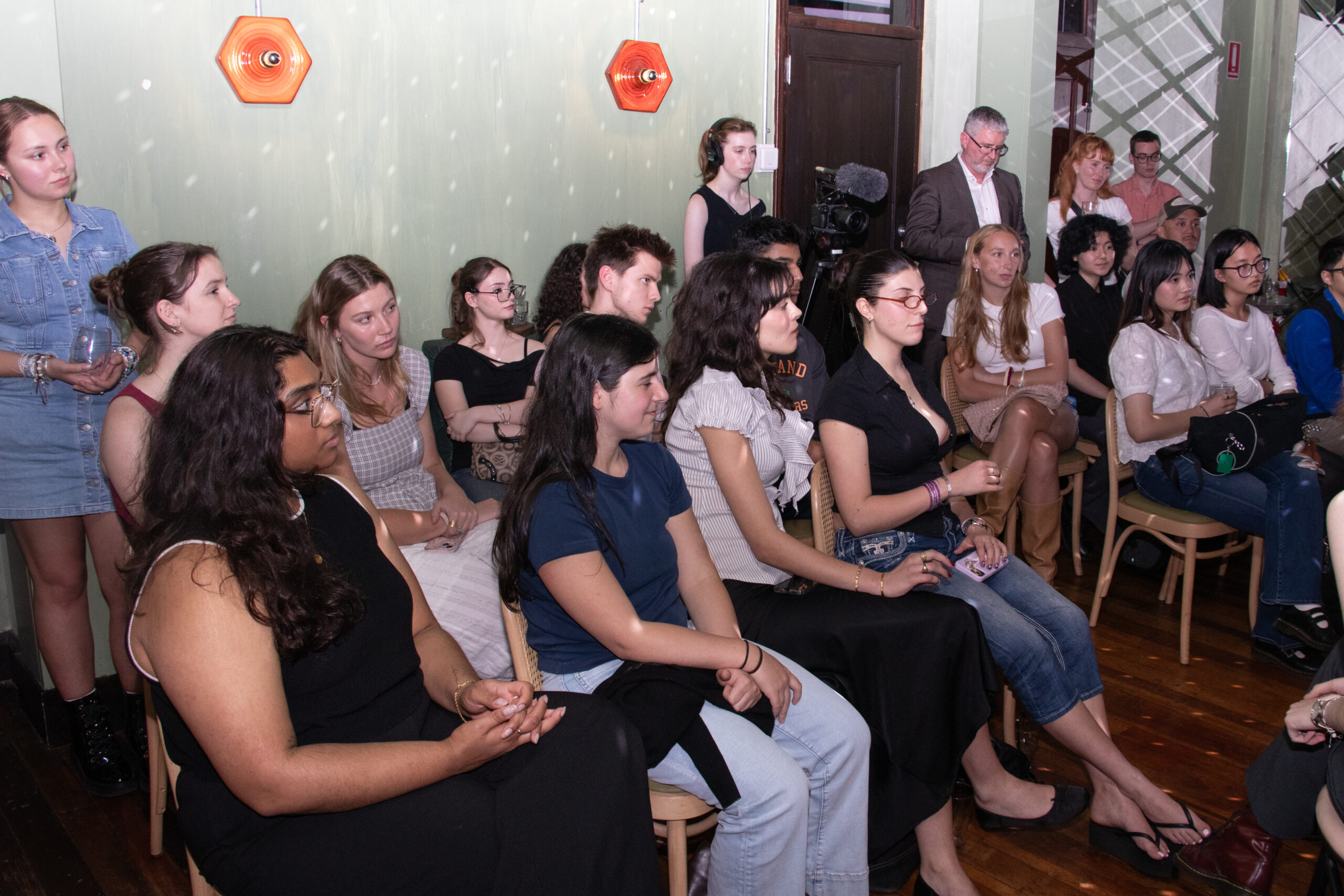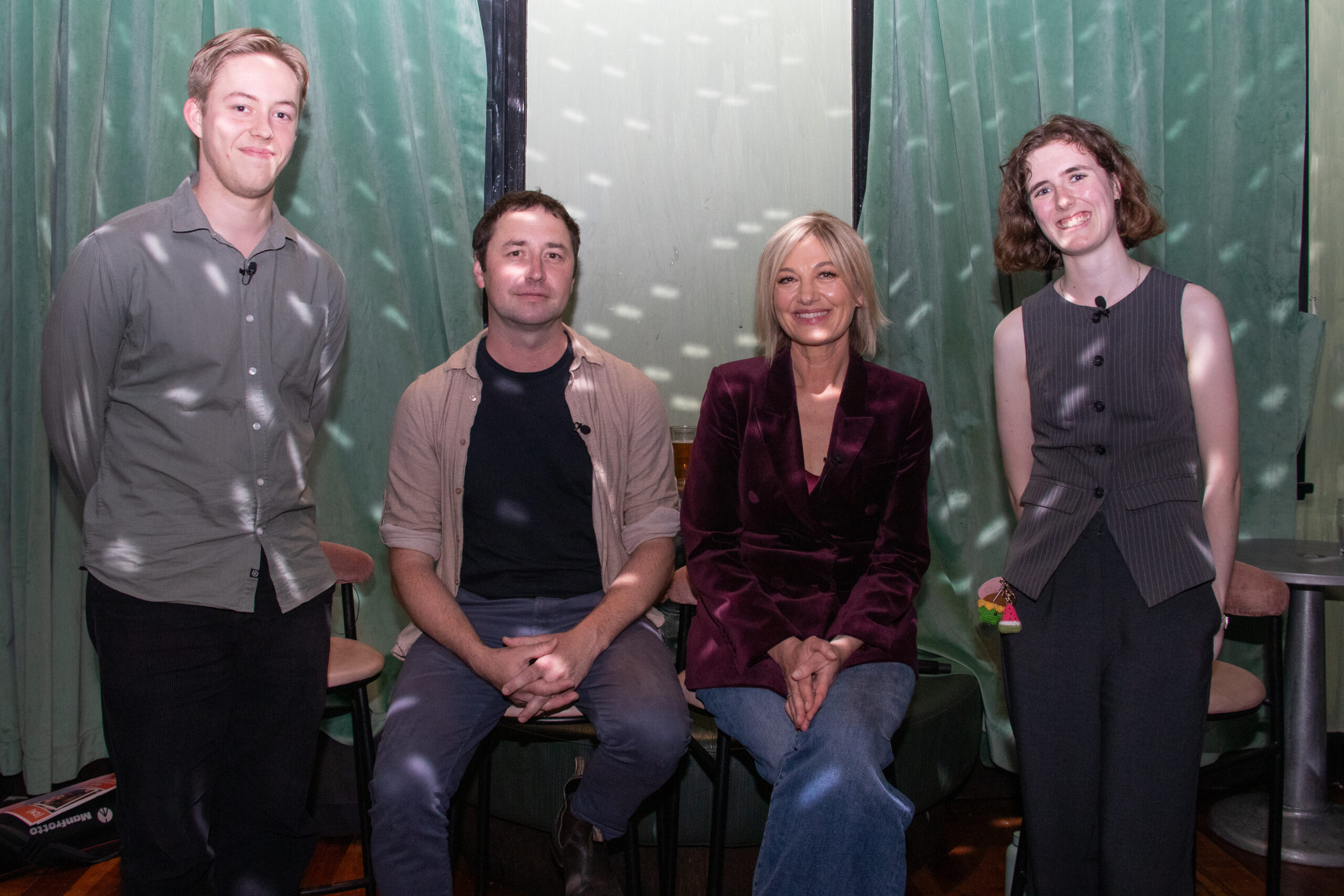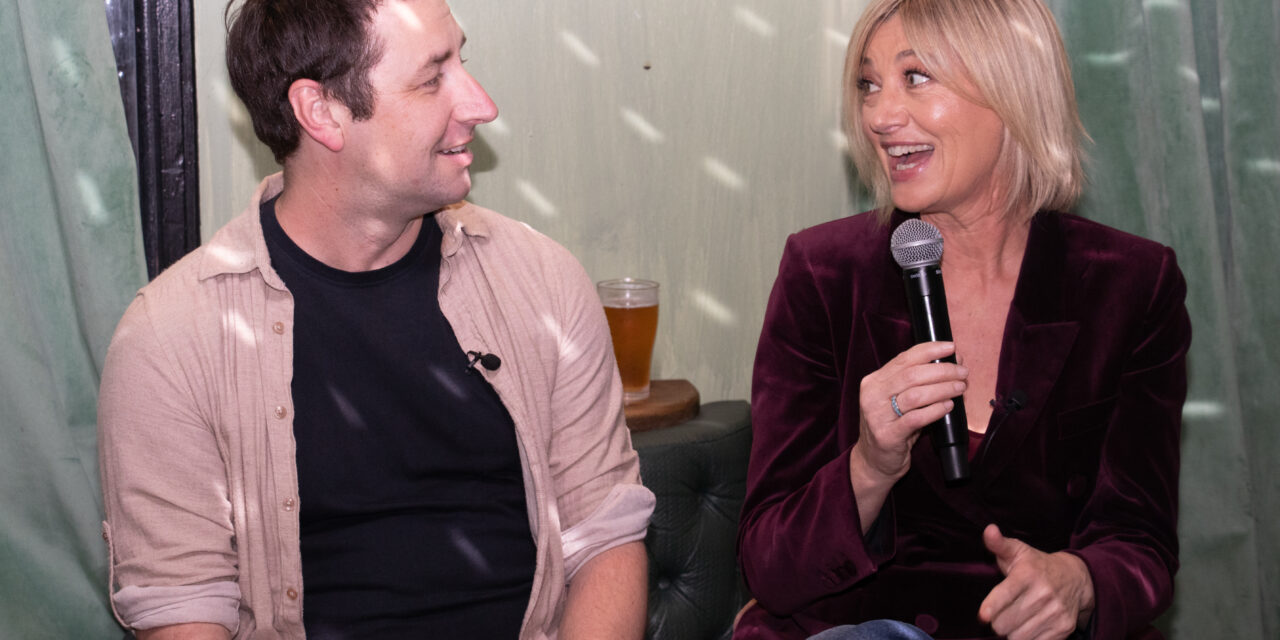Being detained by secret services, confrontations with American GIs and making career sacrifices were all on the agenda when award-winning reporters Tara Brown and Colin Cosier spoke with UTS journalism students.
The pair, from 60 Minutes and SBS Dateline, covered a wide range of topics including how to connect with experienced journalists for advice on getting a start in the industry.
About 70 people attended Central News’ annual Journos in the Pub event last Wednesday night at the Abercrombie Hotel, compered by students Caitlin Maloney and Sam Lawrence.
“Be clear that you are passionate about this because this is a hard industry,” Brown told the audience. “It’s hard to get in to, it’s hard to stay in, it’s sometimes hard to stay inspired.
“If you are passionate about it and you get a knock back, you come forward again.”
Both Brown and Cosier have extensive experience reporting on the Middle East and much of the conversation focused on it.
Brown recalled experiences with US soldiers while reporting in Afghanistan, characterising them as performing a job and with little regard for the Afghan population.

UTS journalism students joined Tara Brown and Colin Cosier at the Abercrombie Hotel. Photo: Orlando Sagar.
“They [soldiers] knew nothing about the politics; they didn’t care,” said the 60 Minutes presenter. “You met up with guys who were clearly on something to keep them awake and they were scary.
“They had no love at all for the Afghan people, including little kids.”
However, she also noted while talking with generals and colonels their attitude toward the local population was “completely different”.
“They [senior officers] were very much about meeting with the warlords, each head of the village and understanding, educating and being respectful of culture. So, it was actually quite an interesting education.”
Cosier talked about his experience being among the first group of Australian journalists who travelled to Afghanistan in 2024 to investigate alleged Special Air Service Regiment war crime sites in Uruzgan Province.
“We got the blessing of the Taliban to go to Uruzgan,” he said. “It was was going very well until we were about 20 kilometres from Darwan, the site of the infamous Ben Roberts-Smith cliff kick [murder].
“We got stopped by the Taliban secret police, we got interrogated, we got held for the night and then we got kicked out of the country.”
Both spoke about how they always tried to be as objective as possible in their reporting.
“Being aware is the first safeguard,” said Brown. “Sometimes you actually have to make compromises to get access anywhere; you perhaps know that you are in the company of somebody who has a particular bent or a particular view and that’s the only information you’re getting.

Colin Cosier and Tara Brown (centre) were interviewed by Sam Lawrence (left) and Caitlin Maloney (right). Photo: Orlando Sagar.
“It becomes an editorial decision whether you do that… being aware that there is another side to it and then it’s about doing your best to furnish that or question… to be up on your knowledge so you can then question the person that is feeding you the information.”
Cosier added: “It doesn’t really matter where you are, the basics and the standards still apply.
“You are upfront about who you are and what you’re doing, you interview a range of people and try to get a range of views, then you question and check.
“War zone, or Sydney, you are applying the same basic tests.”
However, Brown said there were instances where the “basic tests” need to be compromised if someone’s life is at stake.
“There are circumstances where you can’t [apply those tests]… you’re putting someone’s life at risk,” said Brown. “There are times in Afghanistan and there might even be instances now where to interview a woman would be putting that woman at risk.”
Talking about resilience as a student trying to get a foot in the door of the industry Brown said research remained the most fundamental aspect of journalism.
“Sacrifice is part of the success story,” she said. “We all want to be superstars and we all want to chase after the story of our dreams immediately but don’t ever be frightened of being researchers; it is the most important part of journalism.”
Main image by Orlando Sagar.




























